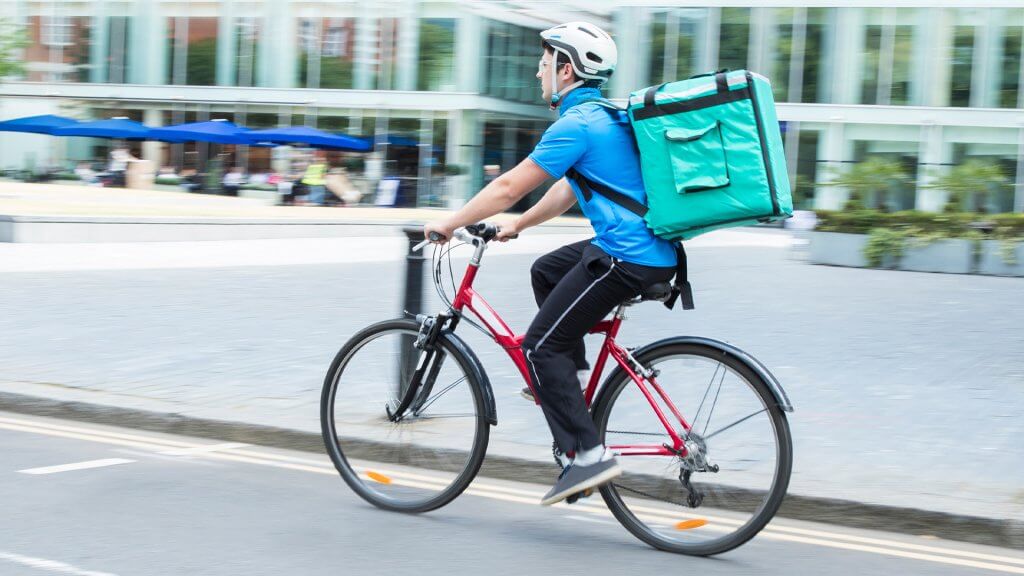
It’s no secret that smart technology and artificial intelligence are becoming more widespread. With 54% of the world’s population living in cities, a figure predicted to rise to 66% by 2050, there is a clear need for technological advancements to keep up with the increase in population.
So-called smart cities focus on making life easier for all inhabitants, encouraging advancements not only in technology but also sustainability. Lower emissions, reduced energy usage and carbon neutrality have possible via technological advancements. There are roughly 140 smart cities already operating across the world and this number is only predicted to grow!
Zurich is currently the leading smart city in the world, closely followed by Oslo, Canberra and Copenhagen. London achieves the sixth spot, providing smart solutions such as an advanced 5G network and heavy investment in AI. But how ready is the UK for our technologically-advanced future?
Key findings
- At the end of 2022, there were a total of 7 million public charging points for electric vehicles worldwide.
- The UK currently features 44,400 EV charging points, with 13,382 of these found in London.
- Anti-vandal measures and new innovations will help ready the UK for the expected boom in electric car usage.
- Copenhagen is likely to be the first carbon-neutral city in the world with initiatives like CopenHill leading the charge.
- AI-led initiatives have helped to reduce greenhouse gases by 13% in the last two years.
- Nottingham is leading the carbon-neutral race within the UK, successfully reducing their emissions by 52.3% since 2005.
- 23 areas within the UK are trialling more sustainable methods of transportation, such as hireable e-scooters.
- Hull’s Smart Bus scheme improves the city’s sustainability credentials whilst also making their transportation system more accessible.
Electric cars
Lower emissions and a reduction in the use of fossil fuels are some of the key markers of a sustainable, smart city. Electric cars are leading the charge when it comes to minimising emissions.
At the end of last year, there were a total of 2.7 million public charging points for electric vehicles worldwide. China boasts over 1.7 million of these chargers, with Europe installing around 530,000. The United States is lagging behind in terms of EV charger availability, with the lowest growth rate among the major market players at only 9%.
The UK government have committed to a plan for 100% electric vehicle dominance by 2035, with a ban on the sale of petrol and diesel cars coming into effect in 2030. With a total of 11.6% of all new UK car registrations relating to electric cars in 2021, it does seem that the UK is moving towards an all-electric future.
But the current number of electric charging points across the country totals just 44,400, with 13,382 of these in London. This provision is not enough to keep pace with the number of electric cars predicted to be on the roads in the coming years. In order for the UK to reach its target of 300,000 charging points, our monthly installation rate needs to increase by a huge 288%!
The reliability of charging points is also uncertain, with recent research revealing problems with accessibility and functionality. 30% of Londonderry’s charging points experience extended downtimes. Newcastle follows close behind, with over 21% of charging points within the city non-functional.
Further technological innovations need serious consideration and investment to combat this issue. For example, anti-vandal measures, such as toughened touch screens, will reduce the number of broken charging points. The UK government’s proposal of a streetlamp capable of charging an electric vehicle and selling power back to the National Grid also provides hope for a smarter, more sustainable future.
Sustainable advancements
Sustainability is an essential part of the smart city, as technology strives to make urban life easier and more efficient. The UK must be net zero by 2050. Denmark, Finland and Spain are currently leading the race towards carbon neutrality, but it seems Copenhagen will be the first city to claim the title. To reach the goal, 100% of a city’s heating must come from sustainable, renewable sources.
Initiatives such as Copenhagen’s CopenHill are setting them apart from other cities. CopenHill is a sports centre which sits atop a waste-to-energy plant that supplies power to a large number of homes and businesses within the city. Lahti in Finland are also making strides with their carbon-free symphony orchestra – a world first achieved by cutting down on transportation and energy usage!
Many of these initiatives are possible with AI and the ability this technology holds to help reduce emissions. In the last two years, the use of AI to attain granular data on a business’ carbon performance and improve power efficiency has helped reduce greenhouse gases by 13%!
The UK aren’t far behind, with Nottingham unveiling plans to achieve carbon neutrality by 2028. Recent encouraging findings reveal the city has reduced its emissions by 52.3% since 2005 – the highest reduction of any UK core city! The city is also following in Copenhagen’s footsteps by turning waste into energy used to power over 5,000 homes and 200 businesses.
Smart transport
There’s more to smart transport than just electric cars. Advancements in technology now allow for larger vehicles, such as buses, to run on low-carbon biogas and hireable e-scooters are currently undergoing a trial period across 23 areas within the UK, including London and Newcastle.
Newcastle’s bright orange scooters have proven popular with locals, travelling more than a million miles during their trial period! However, the trial has seen a number of extensions and there are frustrations around the government’s willingness to fully introduce the sustainable travel method. With 97% of users viewing the scooters as having a positive impact on the local economy, it surely makes sense for them to be fully legalised, enhancing the sustainability factor of the city.
Hull is another UK city looking to technology to enhance the experience of its community. Their Smart Bus trial began at the start of this year, communicating essential information to passengers waiting at bus stops in an accessible fashion. The ‘Sm@rt’ app is available to download from the app store and gives customers the option to access timetables and important updates from their own phone or to have it read aloud. This will open up the bus service to a wider range of passengers, thereby increasing the efficiency of transport whilst also encouraging a more sustainable method of transportation than a car or taxi.
Nottingham has harnessed technology to achieve their net carbon reduction, installing over 130 EV charging ports, ensuring 46% of taxis and 30% of public buses run on either low-carbon biogas or electricity.
Mark Cambridge, CEO at Zytronic, comments: “The vision of cities such as Newcastle and Nottingham and their use of technology is encouraging when it comes to the UK meeting our net zero goal.
If the UK continues to innovate and reaches the proposed targets for the coming years, our cities will become truly smart and capable of thriving within the technologically focused future.”





























